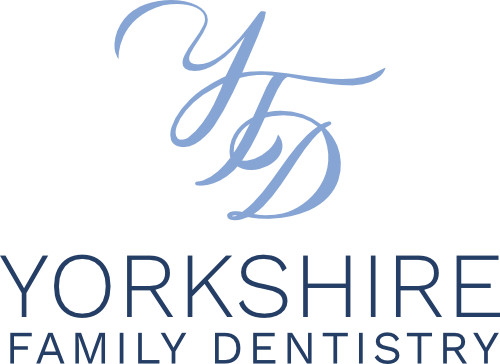Navigating Oral Care: The Role of Saliva in Keeping Your Teeth Healthy

Let’s talk saliva! This ever-present fluid in our mouths is a crucial player in the ecosystem of our oral health, acting as a first line of defense against pathogens, aiding in the digestion of food through enzymatic action, and facilitating the remineralization of tooth enamel to prevent decay. Its antibacterial properties help ward off infections, while its role in neutralizing acids protects against erosion and cavities. Furthermore, saliva helps in the detection of taste and maintains moisture in the mouth, which is essential for speech and comfort. Its significance extends beyond mere moisture, highlighting its pivotal role in not only preventing dry mouth but also in combating oral diseases and promoting a balanced oral environment.
What Is Saliva?
When you think of saliva, you might just consider it as mere water in your mouth, but it’s so much more! Saliva is a powerhouse fluid, composed mainly of water, yes, but it’s the additional 0.5% of substances that really make it special. This half a percent is loaded with electrolytes, mucus, antibacterial compounds, and crucial enzymes. These elements work together to initiate the digestion process by breaking down food as soon as it enters your mouth.
Produced by the salivary glands found in our cheeks, under our tongue, and near the jawbone, saliva is about more than just aiding you enjoy your meals. It’s a key player in the maintenance and protection of our oral tissues. By understanding the complexity and significance of saliva, we can better appreciate its role in our overall oral health and why it’s something to be cared for with diligence.
What Does Saliva Do?
Saliva isn’t just for keeping your mouth moist; it plays a crucial role in your body’s defense system, especially in the mouth. Its antibacterial properties fight against harmful bacteria, ensuring our gums and teeth are less susceptible to infections and diseases.
Moreover, saliva serves as a natural pH regulator. After you enjoy a favorite snack or meal, saliva helps to neutralize acids produced by bacteria in your mouth, protecting your enamel from erosion and aiding in the prevention of cavities.
It’s not just about dental health, though; saliva also facilitates speaking and swallowing by lubricating the mouth, highlighting its role as both a guardian and enabler within our oral ecosystem. Its capability to break down food from the start means that saliva is also the unsung hero of the digestive process, preparing your meal for its journey through your digestive system. Essentially, saliva does much more than we might acknowledge, playing an essential role not only in oral health but in overall bodily functions.
What Is Saliva’s Impact on Tooth Enamel and Cavities?
Saliva is often an unsung hero when it comes to protecting our tooth enamel and warding off cavities. Acting as a natural safeguard, saliva helps to rebuild and strengthen tooth enamel through a process known as remineralization. This crucial process involves minerals found in saliva, such as calcium and phosphate, which work together to repair enamel that has been weakened by daily acid attacks from our diet.
Moreover, saliva’s constant flow helps to wash away food particles and debris, reducing the likelihood of these remnants turning into cavity-causing plaque. This continuous cleansing action is vital for preventing tooth decay and maintaining a healthy oral environment. However, when saliva flow is diminished, our mouth’s natural defense system is compromised, increasing the risk of cavities and enamel erosion.
How Does Saliva Control Bad Breath and Gum Issues?
Imagine saliva as your mouth’s own personal cleaning service, tirelessly working to ensure freshness and health around the clock. This natural fluid is instrumental in controlling bad breath, also known in medical terms as halitosis, by constantly rinsing away food particles and microbes that, if left unchecked, could lead to unpleasant odors.
But its role doesn’t stop at freshening breath; saliva also plays a crucial role in preventing gum disease. It achieves this by washing away the harmful bacteria that could otherwise settle along your gum line, potentially causing inflammation and other gum-related problems. The secret lies in saliva’s composition, which includes substances with antibacterial properties that help maintain a balanced, healthy oral microbiome. This natural equilibrium is vital for keeping both bad breath at bay and supporting gum health.
Without sufficient saliva flow, the risk for gum disease and halitosis increases, highlighting the importance of this often-overlooked bodily fluid in our oral health toolkit.
How Does Saliva Affect Tooth Development?
Saliva also plays a fundamental role in the dental development in children. This wondrous fluid is a rich source of minerals such as calcium and phosphate—key building blocks for strong and healthy teeth. For young ones growing their first set of teeth or shedding them for their permanent successors, saliva acts as a natural fortifier, ensuring these new teeth have the resilience to last a lifetime.
But it’s not just about the physical strength of teeth; saliva also defends against the bacteria that cause tooth decay, providing a protective barrier around young teeth, often more susceptible to cavities. Moreover, the enzymes in saliva assist in the initial stages of digestion, helping children break down food more efficiently and absorb more nutrients, which is crucial for their overall development.
Encouraging children to stay hydrated, maintain a healthy diet, and regularly visit Yorkshire Family Dental can enhance saliva’s natural benefits, supporting their oral development and setting the stage for a lifetime of healthy smiles.
What Happens When There’s Too Much or Too Little Saliva?
While saliva is usually our mouth’s greatest ally, there are times when its balance is disturbed, leading to either an excess or a deficiency. This imbalance can impact not just our comfort but our oral health as well.
Excessive saliva production, or hypersalivation, can be burdensome, often triggered by certain medical conditions or as a response to specific medications. Conversely, insufficient saliva production, commonly known as dry mouth or xerostomia, poses its own set of problems. Dry mouth can make everyday tasks like talking, eating, and swallowing difficult and can increase your risk for cavities, gum disease, and infections due to a lack of natural cleansing and antibacterial action from saliva.
Thankfully, there are effective methods to manage these issues and reestablish equilibrium in your saliva production. For those suffering from dry mouth, staying hydrated or using saliva substitutes or stimulants recommended by a healthcare professional can offer relief.
Meanwhile, tackling the root causes of hypersalivation can aid in reducing surplus saliva. It’s essential to consult with your dentist at Yorkshire Family Dental to identify the most suitable approach for your specific situation. By taking proactive measures to manage your saliva production, you can preserve the health and comfort of your mouth, ensuring your saliva continues to be the protector it’s intended to be.
What Can You Do to Maintain Healthy Saliva Flow?
Good oral hygiene is more than just a pathway to a sparkling smile—it’s a cornerstone for promoting a healthy saliva flow, an unsung hero in our mouth’s ecosystem. By adopting a routine that includes brushing with fluoride toothpaste twice daily and flossing once a day, you’re not only removing food particles and plaque but also supporting your saliva in its mission to protect your oral health. Adding a mouthwash that complements your oral care routine can further strengthen saliva’s natural defenses against bacteria and acid attacks.
Another simple yet effective strategy is staying hydrated. Drinking water regularly assists in maintaining optimal saliva production, ensuring your mouth stays moist and better equipped to combat dry mouth, a common obstacle to saliva’s protective roles. By avoiding habits that diminish saliva flow, such as consuming caffeine and alcohol in excess, you’re taking proactive steps toward safeguarding your oral environment.
Each of these practices, in addition to regular visits to Yorkshire Family Dental, plays a vital role in nurturing a balanced, healthy saliva flow, crucial in fortifying your oral health against potential threats and maintaining that confident, healthy smile.
Why Are Regular Dental Visits So Important?
Making a habit of scheduling regular appointments at Yorkshire Family Dental is more than just a calendar reminder—it’s a critical step in safeguarding your oral health. At these check-ups, your dentist has the unique opportunity to spot early signs of issues related to saliva imbalance, such as dry mouth or an increased risk for cavities, that might not yet be on your radar.
But it’s not just about problem prevention; these visits to Yorkshire Family Dental also allow your dentist to offer personalized advice and treatments to ensure your saliva is doing its best work in protecting and maintaining your mouth’s health. Whether it’s adjusting your oral care routine or introducing treatments to manage saliva production, your dentist is your partner in maintaining a balanced, healthy mouth. Plus, regular professional cleanings play a significant role in removing plaque and tartar buildup, something brushing alone can’t accomplish, further supporting saliva in its crucial role in oral health. By committing to these dental visits, you’re taking a proactive stance towards a healthier mouth and a brighter smile, underlining the undeniable link between professional dental care and enduring oral health.
Our caring team at Yorkshire Family Dental is here to serve patients in the Yorktown, VA area. Contact us today to make an appointment. Your dental health and bright smile are our priorities!
